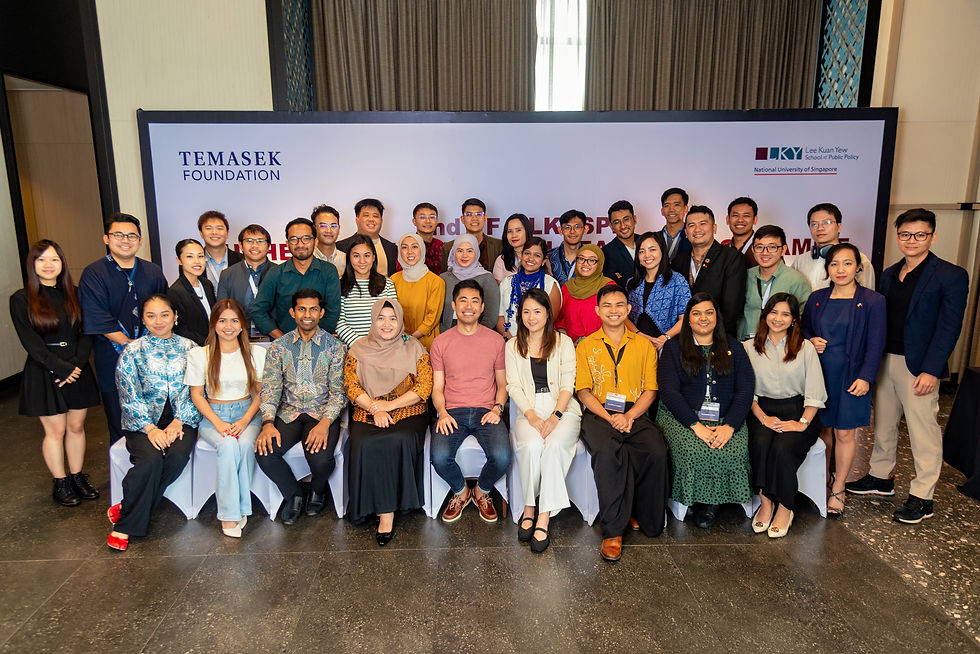Year-ender: FNI examines the feasibility of the Philippines' submarine acquisition
- ARS Editorial Staff

- Dec 20, 2021
- 4 min read
[PRESS RELEASE]
Published: 20 December 2021
On 16 December 2021, The Foundation for the National Interest (FNI) and Amador Research Services (ARS) conducted a webinar titled: “Kwentong Mandaragat: The Philippines’ Submarine Acquisition: Costs, Opportunities, and Learning Curve”. This webinar highlighted the significance, implications, and challenges of the Philippines’ submarine acquisition and took stock of lessons from other countries’ submarine acquisition programs.
The webinar’s opening remarks were delivered by FNI Chairman of the Board Ret. VADM Jose Luis Alano. The webinar featured the following esteemed resource speakers: Dr. Collin Koh, Research Fellow in S. Rajaratnam School of International Relations; Dr. Marcus Hellyer, Senior Analyst, Australian Strategic Policy Institute; Mr. Stephen Meunier, Vice President Operational Marketing, Naval Group; RADM. Rommel Ong (Ret), Professor of Praxis at the Ateneo School of Government; and Mr. Jesse Pascasio, Trustee of Foundation of National Interest.
VADM Alano (Ret) warmly opened the event by welcoming the guest speakers, partners, and audience for participating in this important discussion in securing the Philippines’ maritime resources. He discussed the Philippines' necessity for military development and how this may involve the acquisitions of submarines. He said, “Given the maritime security challenges, defense policymakers and planners will have to answer key and critical dynamic questions such as what strategies we need to deploy to meet the security challenge; and what kind of defense security structure will be needed to address the situation for the Philippines?”
Dr. Koh presented submarine programs in South East Asia that illustrated the costs, benefits, and challenges of obtaining a submarine. These challenges include the risk of submarines as destabilizing platforms and how it is common for them to be involved in maritime accidents and costly emergency responses. He also discussed the current capability trends in which submarines are outfitted with better quieting, better-submerged endurance, better combat systems, and better standoff weapon capabilities. Dr. Koh noted that sustained funding is imperative given the high costs of obtaining a submarine. He said, “Most people focus on the submarine itself but in fact, we have to consider the ecosystem of capability.” He also mentioned the need for readiness in Maintenance, Repair, and Overhaul (MRO), requisite supporting infrastructure, as well as personnel training and proficiency.
Mr. Hellyer shared Australia’s experience in obtaining and using submarines, particularly for long-distance missions along strategic pathways. He described the challenges and difficulties of acquiring and maintaining a small fleet. He discussed the difference between nuclear submarines and conventional submarines and recommended that the Philippines choose the conventional submarines, should it decide to acquire submarines. Additionally, he pointed out that the Australian perspective may differ from the Philippine perspective due to its geographical location and economic differences. Hence, he suggested that a better comparison would be from countries in Southeast Asia, such as Vietnam and Singapore.
Mr. Meunier shared his insights on France’s submarine program and discussed how submarine acquisition would develop naval credibility and defense of the nation in terms of defense, deterrence, and sovereignty. He noted however that submarine ownership and manning requires a highly skilled crew. Furthermore, he discussed the many uses of submarines: as a deterrent, as a safe and stealthy vehicle to be used in hostile or dangerous territory, as a undetected intelligence gathering and sharing tool, and, If necessary, the submarine can be used as powerful defense weapon, which can be used alone or in cooperation with other assets. For the Philippines, he recommends careful consideration of the types and number of submarines needed to create, sustain, and upgrade automation in the maritime industry.
RADM Ong presented the necessity of acquiring submarines vis-a-vis China's Maritime Axis of Advance and extensive missile ranges. This has become critical to the South China Sea as the area is no longer a permissive environment for surface assets. He shows the naval strategy of the Philippines in accordance with its maritime geography. He discussed the Navy Capability plan and the perspective of the Philippines in defending itself alone. The Philippines faces many challenges. Hence, he recommended an approach to improve the country’s naval capability: 1) Assess the impact of submarine acquisition to PN force structure, spending plan, of the future surface fleet; 2) Collaborate with the Philippine Coast Guard (PCG); 3) Understand our “battlespace” and how to dominate it; 4) Leverage alliance and partnerships to help reshape the future fleet, and 5) Explore how artificial Intelligence (AI), robotics, and quantum computing can lend support for the country’s military industry.
Lastly, Mr. Jesse Pascasio discussed the political economy of submarines. He shared its potential economic impact on our local industries, especially in shipbuilding. However, he emphasized that responsible defense spending is essential. He further discussed the potential sources of revenues to finance the submarine acquisition such as oil exploration, offshore mining, and developing the blue economy. In a much broader sense, he suggested the Philippines shall have an economic model that would heavily affect the middle class. He emphasizes the necessity for cooperation and collaboration. However, Mr. Pascasio firmly asserted that submarine acquisition is currently not feasible and should be strongly reconsidered.
The latest installment of the Kwentong Mandaragat provided an engaging and fruitful discussion on the cost, implications, and benefits of the Philippines’ future acquisition of submarines. The speakers have provided different perspectives and much broader context including political, security, and economic considerations of the country.
Participants in this webinar included government officials from the following agencies: Philippine Navy, PNP Maritime Group; members of the diplomatic community; students and professors from various universities; members of the academe and non-governmental organizations.
Screenshots of the event taken below.
END
























Comments